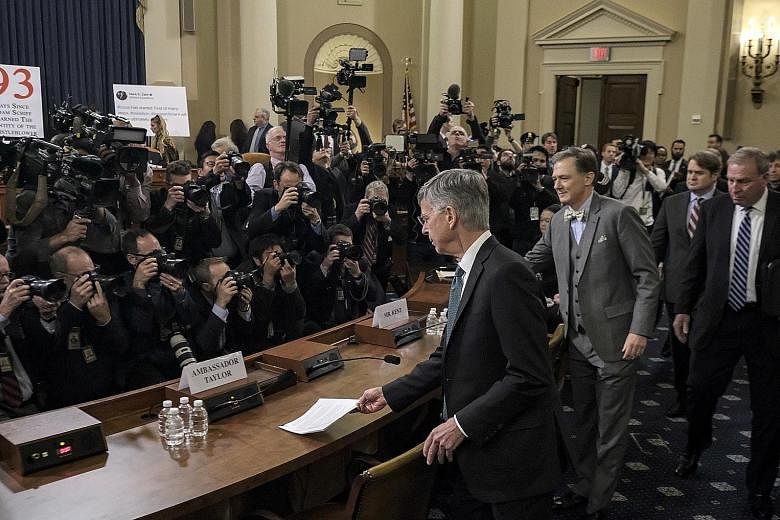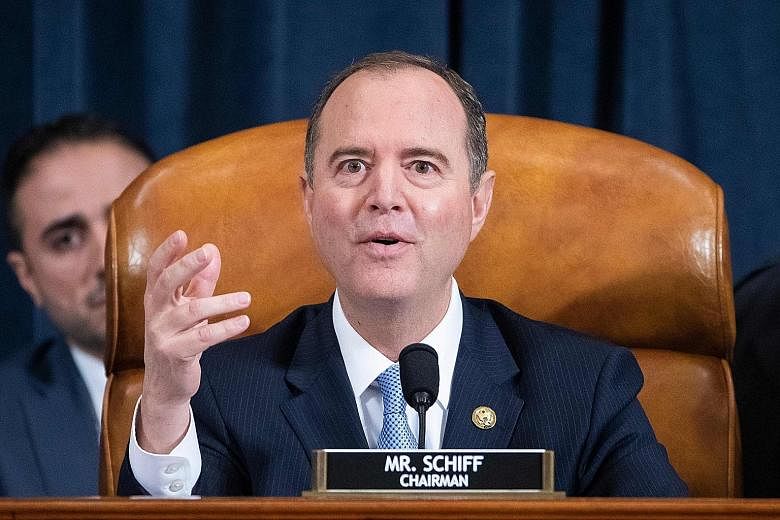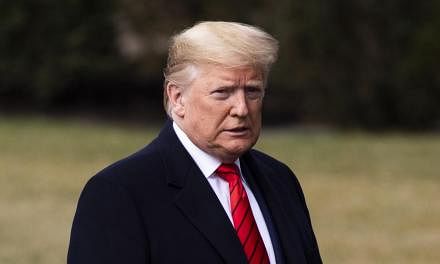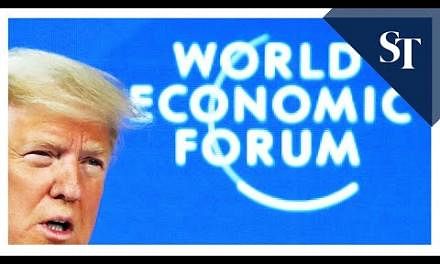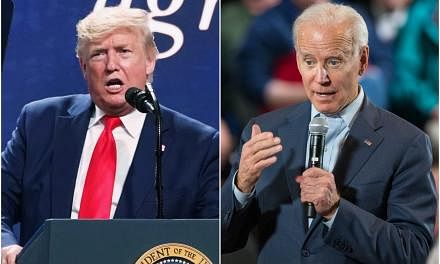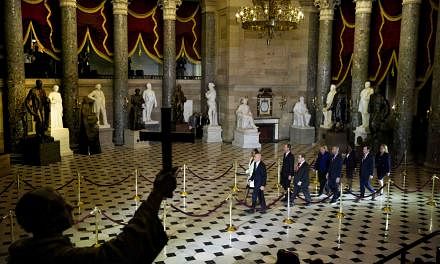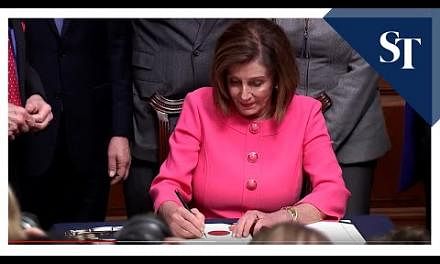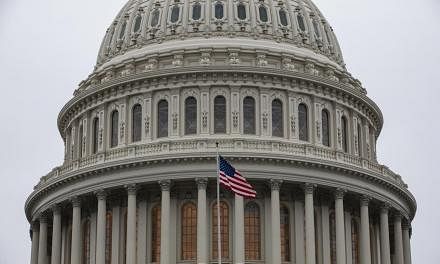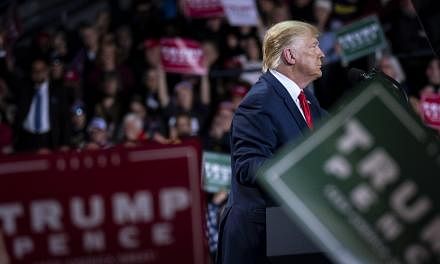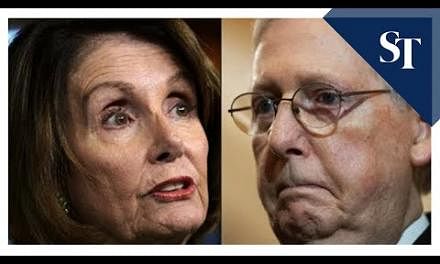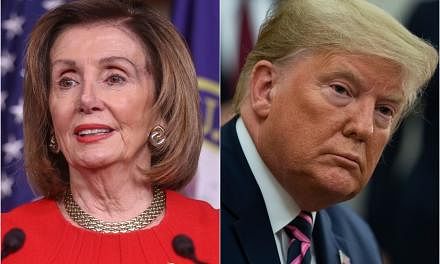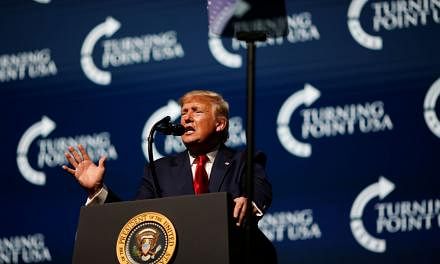WASHINGTON • Senior Democratic and Republican lawmakers have presented duelling narratives as a United States congressional impeachment inquiry that threatens Mr Donald Trump's tumultuous presidency entered a crucial new phase, with the first televised public hearing on Wednesday.
The drama unfolded in a hearing of the House of Representatives Intelligence Committee in which two career US diplomats, Mr William Taylor and Mr George Kent, voiced alarm over the Republican President and those around him pressuring Ukraine to conduct investigations that would benefit Mr Trump politically.
One revelation in particular drew attention, showing Mr Trump's keen interest in Ukraine investigating political rival Joe Biden.
Mr Taylor said a member of his staff overheard a July 26 phone call between Mr Trump and Mr Gordon Sondland, a former political donor appointed as a senior diplomat, in which the President asked about these investigations and Mr Sondland told him that the Ukrainians were ready to proceed.
Following the call, the staff member asked Mr Sondland, the US Ambassador to the European Union, what Mr Trump thought about Ukraine, said Mr Taylor, who is the top US diplomat in Ukraine.
The call occurred a day after Mr Trump asked Ukraine's President during a phone call to conduct these investigations.
"Ambassador Sondland responded that President Trump cares more about the investigations of Biden, which Giuliani was pressing for," Mr Taylor testified, referring to Mr Trump's personal lawyer Rudy Giuliani.
Asked by the intelligence committee's Democratic chairman Adam Schiff if that meant Mr Trump cared more about the investigations than about Ukraine, Mr Taylor said: "Yes, sir."
The focus of the inquiry is on the July 25 telephone call in which Mr Trump asked Ukrainian President Volodymyr Zelensky to open a corruption investigation into Mr Biden and his son Hunter, and into a discredited theory that Ukraine, not Russia, meddled in the 2016 US presidential election. Mr Hunter Biden had worked for Ukrainian energy company Burisma.
With a potential television audience of tens of millions looking on, Mr Schiff opened the historic session - the first impeachment drama in two decades - in an ornate hearing room packed with journalists, lawmakers and the public.
Mr Schiff's accusations that Mr Trump abused his power were met by a staunch denial by the panel's senior Republican Devin Nunes of the President's complicity in a saga that revolves around whether Mr Trump and his aides improperly pressured Ukraine to dig up dirt on a political rival for his political benefit.
Mr Taylor and Mr Kent, the deputy assistant secretary of state for European and Eurasian affairs, expressed concern that US security aid was withheld from Ukraine as leverage to get Kiev to carry out the investigations.
"The questions presented by this impeachment inquiry are whether President Trump sought to exploit that ally's vulnerability and invite Ukraine's interference in our elections," Mr Schiff said in his opening statement.
"Our answer to these questions will affect not only the future of this presidency, but the future of the presidency itself, and what kind of conduct or misconduct the American people may come to expect from their commander-in-chief.
"If this is not impeachable conduct, what is?"
This week's hearings, where Americans are hearing directly for the first time from people involved in events that sparked the congressional inquiry, may pave the way for the Democratic-led House to approve articles of impeachment - formal charges - against Mr Trump.
That would lead to a trial in the Senate on whether to convict Mr Trump of those charges and remove him from office.
Republicans control the Senate and have shown little support for Mr Trump's removal.
Mr Nunes hewed to the Republican strategy of arguing that Mr Trump did nothing wrong or impeachable when he asked Mr Zelensky to investigate Mr Joe Biden, a key 2020 re-election rival.
